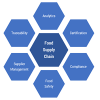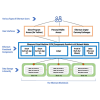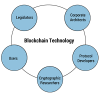Strategic advice to leverage new technologies
Technology is at the heart of nearly every enterprise, enabling new business models and strategies, and serving as the catalyst to industry convergence. Leveraging the right technology can improve business outcomes, providing intelligence and insights that help you make more informed and accurate decisions. From finding patterns in data through data science, to curating relevant insights with data analytics, to the predictive abilities and innumerable applications of AI, to solving challenging business problems with ML, NLP, and knowledge graphs, technology has brought decision-making to a more intelligent level. Keep pace with the technology trends, opportunities, applications, and real-world use cases that will move your organization closer to its transformation and business goals.
Recently Published
DevOps practices and cloud platforms can catapult enterprise technology forward, improving consumer responsiveness, time to market, throughput, and resilience, but they depend on continuous improvement to become internalized and self-sustaining.
Blockchain protocols have the potential to facilitate a fundamental shift in the Internet business model from its current status, where the user is the product, to a future model, where the user is the customer and the user’s data always remains in the user’s control.
Blockchain has the potential to transform and disrupt the food and retail industries. Giving access to real-time, auditable, trustworthy information on an immutable ledger about the origin, processing, and handling of food will change how consumers make purchasing decisions, level the playing field for high-quality products, and enable new possibilities in consumer, inventory, and supply chain analytics.
Should You Use Smart Contracts?
One of the major use cases for blockchain is smart contracts. Does it make sense for your organization to use smart contracts? In this article, we describe smart contracts, including a discussion of how they work and the possible benefits of using them. We also examine the downsides of their use and offer further considerations for the reader.
As businesses adopt blockchain technologies, the ecosphere is going to need a specified intermediary agent whose core function is to manage disparate motives, ideologies, and inclinations. If left unaddressed, tensions may morph into enacted tribalism, and a major disjunct will appear between stakeholder groups — potentially stopping the so-called revolution in its tracks.
The ability to link smaller chunks of capabilities and resources together into patterns that generate value may hold the key to a more modern enterprise.
Accelerating Business Architecture: Building the Knowledgebase
Organizations that desire to leverage business architecture for transformation, better strategy execution, or various types of decision making need to build their business architecture knowledgebase first before they can fully benefit from the discipline. This Executive Update is the first in a series that describes how to accelerate the development of an organization’s business architecture.
The main benefit organizations seek to obtain from adopting AI is the ability to create new ways of automating business processes.















